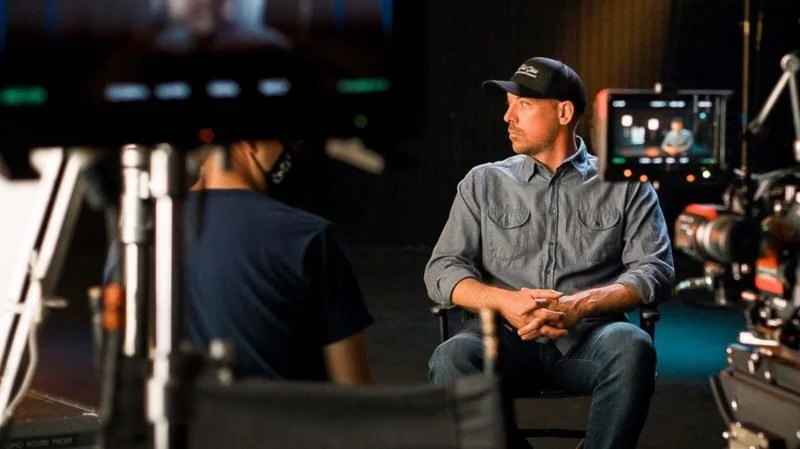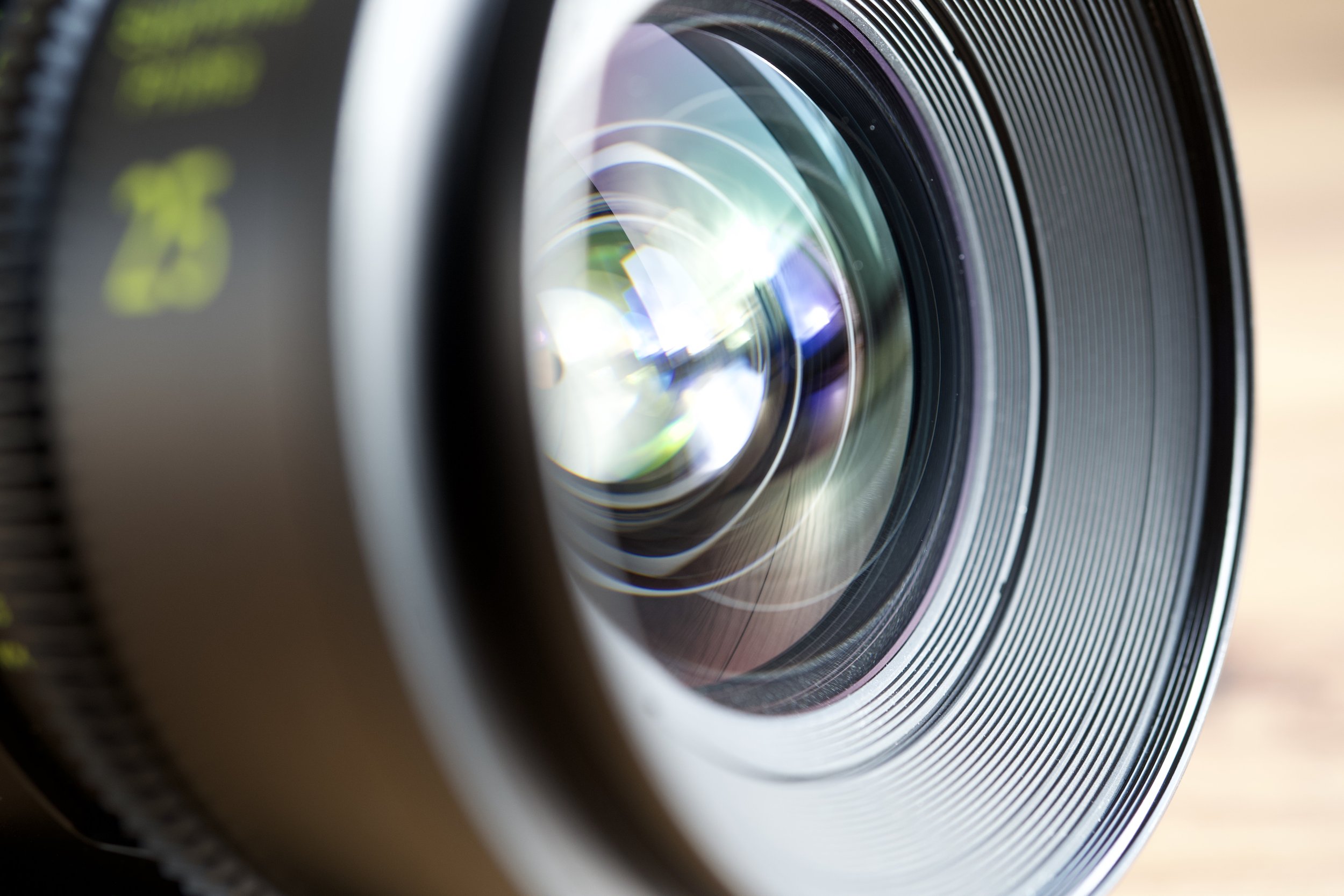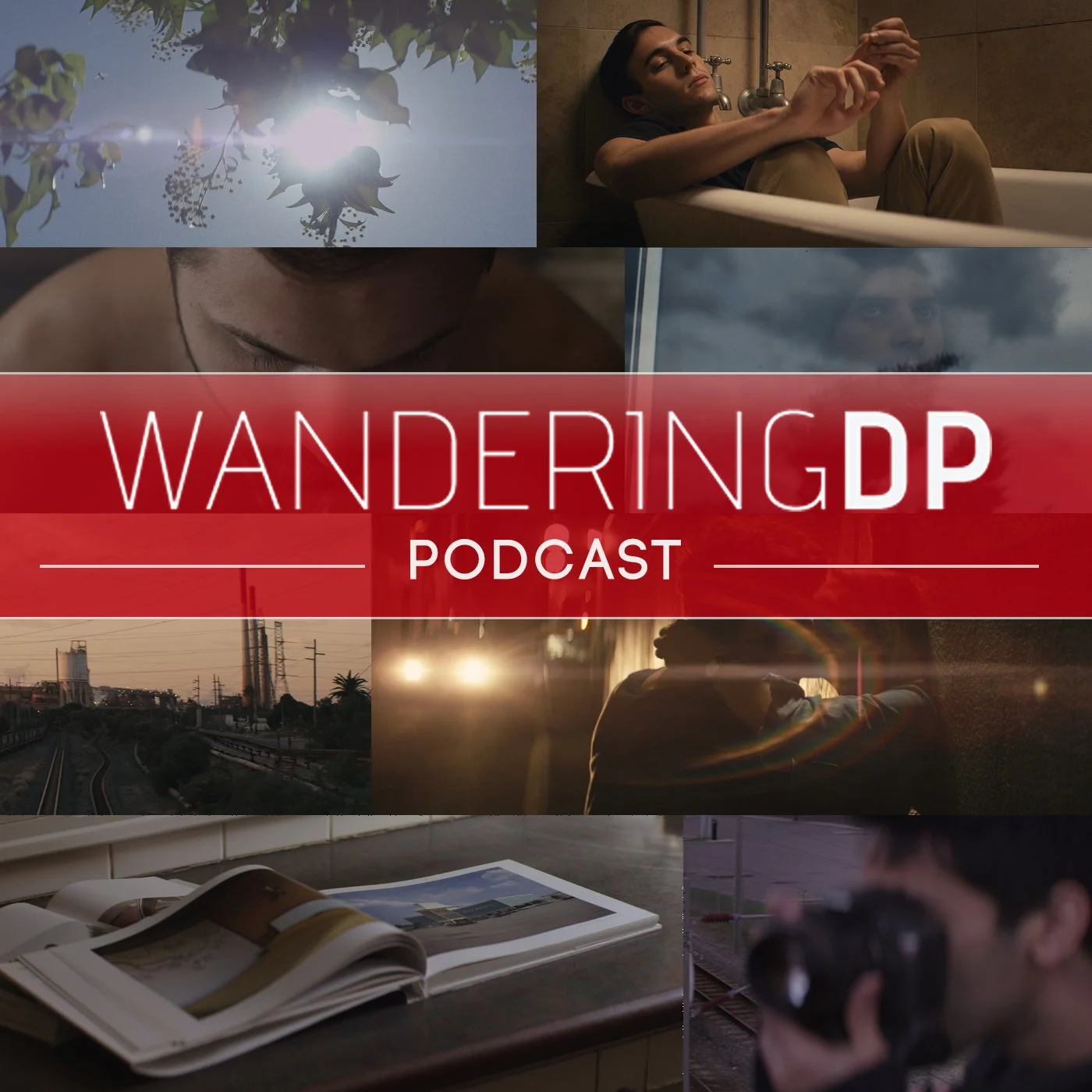THROUGH THE LOOKING GLASS: AN INTERVIEW WITH MARK LAFLEUR AND OLD FAST GLASS
Founder of Old Fast Glad Mark LaFluer
Mark LaFleur has set a new standard when it comes to camera rental houses with Old Fast Glass, a vendor that has been embraced by cinematographers and crew members a like.
Old Fast Glass has quickly become a familiar name in the camera industry in the last few years. Rental houses are commonplace, and a strong reputation is imperative, but only in the last decade has originality been an integral part of branding. OFG has set a standard for what Cinematographers and camera professionals look for in a vendor. OFG has the spirit of cinematographers ingrained in its culture, which stems from the mission set by the founder Mark LaFleur. LaFleur, a cinematographer whose knowledge and passion inspired him to launch Old Fast Glass, shares his experience with us
HOW IT STARTED / THE CINEMATOGRAPHER’S PERSPECTIVE
ML: I came up with the name shortly before our very first lens test. We did our first big lens test in 2016. At that point, I was just renting out the gear that I owned on the side. A lot of people were using Craigslist to rent out their gear, which was just awful. Then, Sharegrid hit around 2014. At that point, as I said, I was just a cinematographer with some gear, so Sharegrid was perfect for me. Ironically I was Sharegrid’s first member. I put all my gear on there, and just under my name. So from 2014 to 2016, I was just doing it out of my apartment, but then in 2016 when I got more inventory we launched our first big lens test
This was the first of three lens tests that make up our ultimate Cinema Lens library. That felt like the right timing for me to officially sort of launch a company.
“ I think one of the reasons that people respond to what we're doing is the trust part of it”
I had been thinking about naming it Old Fast Glass for a while. At that point, we were just lenses. We didn't have cameras or accessories, so the name really made sense. We had our first brick and mortar in late 2016. I was basically a consultant for sharegrid, giving testimonials of sorts to what the owner experience should be like. I helped them with those early stages of the user experience. From the beginning I was obviously renting lenses out. The lenses I bought were ones that I considered good for my own projects. They weren't purchased as an investment. I wasn’t thinking to myself, “Oh, I'll buy these, these will make this much ROI”. That corporate mentality wasn't the motivation. If you have enough money and you can buy all the great gear, you'll probably do okay as a rental house, but there's no fun in it for me doing it that way. I didn’t have endless resources of money to buy everything so I exclusively bought what I would want to shoot with.
This allowed me to approach it from a cinematographer's perspective which sets a tone of trust between us as a rental house. I think one of the reasons that people respond to what we're doing is the trust part of it. I want to know what your project is, and what it is you are trying to do. What do you need to get what you're trying to do? I can suggest using one lens as much as I can advise against another. If it is not right for your project, you're not going to have a good experience. I think that's the thing that's really worked for us.
After the shoot is over the response we get regarding their experience, and the recommendations we gave, is that this was great. It was perfect. It worked. We love the look. There's no point in me, trying to recommend something for any other reason than them having a good experience. It creates repeat clients. I want them to always be able to trust my answer to any questions, so that’s why I’ve always been approaching it from a cinematographer's perspective.
CHALLENGES AND CONFIDENCE
ML: I've honestly avoided buying certain lenses out of stubbornness because I don't like them. They might have actually been good investments, and may have actually had a good ROI, but I didn't buy them. I always have to be able to feel good about the answer to the question: should I use this lens? I want to be able to give an honest opinion. I always want to say no when I don't think that lens is not good for your shoot. There are some lenses out there that I just don't even think I need to own because I don't think they're any good, even if they make money.
But again, I think that's why we have the trust. Now when people ask me about my inventory they ask “Oh, do you like that lens?” I can always answer that I only buy lenses that I would want to shoot on for my own projects. I like that it's so easy for us to stand behind what we do. To feel confident about everything we have on the shelf.
I think the other success, along with trust we have with the cinematographers, is that we're almost part of their production. I feel like we're very involved with pre production when they come to us. They conduct a lens test with us, looking for specific things, lens flares that look like this, low contrast, etc. I’ll give my suggestions and say If those are too funky. Inevitably, they walk away with one appropriate recommendation. They feel like they have a partner. They feel like we are part of that pre production process, and I think it's why we get so much love on social media. We have been talking to each other (cinematographers) for a few weeks or even months. We have had dp’s come in three, four times for lens tests in preproduction for something like a feature and we're not only trying to suggest things to them, but it also might be customization, modifications, last minute purchasing of something that might make their job easier.
“ Most of the companies were only doing prime lenses. We got a lot of resistance but we didn't give up. We were really stubborn about it”
OFFERING OPTIONS
ML: We've been growing very quickly because of this type of experience. Of course the difficulty is I don't have investors or anything so we are buying equipment as fast as we can, but we really do listen to what our clients want. Not only do we try to buy what cinematographers want, we also consider what our camera assistants want. Beyond that we also look for what are the holes in the market. There are actually things that they might ask us for that do not exist. For instance, in the lens game there were no vintage full frame cinema zooms. In the last two years, we've released five vintage zoom lenses. We saw that there was a need for this. We went to all these rehousing companies and we basically begged and pleaded for them to build us these lenses. Most of the companies were only doing prime lenses. We got a lot of resistance but we didn't give up. We were really stubborn about it.
Now we have all of these options, and they're blowing people's minds. I think some people could see that as a risk, because it took a lot of time and investment up front in releasing a product that nobody had. Now we don't really have to convince anyone, because of our reputation from launching the Voigtlander 36-82 millimeter zoom. It's one of the only vintage full frame zooms with truly a lot of character. It covers a really great range and they are on every job. The reason isn't because of good marketing, the reason was it was something everyone was asking for, that didn't exist, and we made it a reality. We've done that with quite a few things. We've actually created quite a few primes and have been the first to rehouse a lot of zooms, and we're working on a bunch of custom future items that will be exclusive to us soon. But again, not based on ROI , but because it’s what the cinematographers needed. We ask ourselves: What is the market lacking? What do I wish existed as a DP? What lenses did I wish existed? We're just trying to be the company that's looking for those things from a DPS perspective and, and bringing them to light
TREASURE HUNTING
ML: I was very uneducated with optics in the beginning.I felt pretty good about my cinematography, my lighting, my composition, my camera operating, I felt like I knew how to make an image during my work as a cinematographer. Then the lens obsession started with the progression of digital cameras. The cameras were already getting really, really good, especially for indie stuff. Lenses were where I could instill a little more character, and so I became obsessed with what lenses would allow me to do my job really well especially when I'm moving quickly. What is the best set of lenses you could ever own? What is the best zoom I could own that would be character rich, but I'm not fighting it on set?
That started the research part of my obsession.
I wanted to know everything about every lens out there so that I could see what people were using and why. I also wanted to know what which ones were out there that no one was talking about. There was a lot of treasure hunting, and it definitely grew as the company has grown. I'm shooting less so I can focus on this research. Now I know what I'm looking for and know what I love about lenses. Fortunately, I feel like people share my taste. There are certain lenses that just have a magical quality that people appreciate, and I think I know how to identify that. Even with all the amazing options that we have there are still quite a few of us out there that still believe there's something missing. That the current options aren't quite good enough, and I believe there actually are viable ways to make this stuff happen. Again, we are working within restrictions and based on that it's made us have to be a little creative. We try to find the sort of things that we can modify, hidden gems that nobody's been paying attention to. So the treasure hunt has been really fun. We try to identify everything out there that we wish we could use for cinematography and then how can we make these things a reality.
WORK LIFE BALANCE / LET ME BE THAT PART OF YOUR BRAIN
ML: I don't think it's any secret that the film industry and TV production is a bit of a younger person's game. I think a lot of the world doesn’t understand the unique nature of working in film and TV because most people do have some sort of nine to five kind of job or like a 40 hour work week. I was doing 13 hour days, six days a week. That's a 78 hour work week. I was working two weeks every week compared to the average American. When I was really grinding and doing anything long form it was six to eight weeks, 12 hour days with a lunch break of an hour. That’s 13 hour days plus your commute. It's like you wake up, you eat, you work, you come home, you eat, you go to sleep. There's nothing else and then you have one day off where you're just absolutely exhausted. As a young person, I loved that I got to travel a lot for work, and some of the best experiences of my life were through my work. I met my wife through work. We met on a feature film. I don't regret a single moment of any of it, it was amazing, but I had a moment where a very specific fork in the road made me think about my career. I was the Creative Director at a production company which got bought out. After that they laid off their entire team, myself included. The company that bought them just cleaned house, but they still took over all their productions. They offered me a 13 episode show, which was four months of work. Iit was another one of the six day weeks, 12 hour days. It was that moment where it was like, take this job and just keep doing what I'm doing or go for Old Fast Glass. Really commit to it.
I decided to commit to it. At that point it was more of a if I'm not going to do it now, I'm never going to do it. And I was excited to do it. But I also could see with a lot of hard work, which I probably underestimated how much hard work it was going to be, there was going to be a little better work life balance.
When I hire somebody, I stress to them we are a nine to five or an eight hour day operation. I really don't love how our industry sort of sucks every ounce of energy out of people. Just because you can shoot a 12 hour day do you have to? Obviously, anyone who started a business knows you're the first one in and you're the last one out. OFG is very much a growing company and I am and I'm wearing a lot of hats, but it's my baby. I obviously care about it more than anyone else, so it feels good to put in all that work but still at the end of the day I'm going home, having dinner, and it's still going to be less hours than I was working when I was freelance. I have my weekends off and I really cherish my family time. I'm still shooting a little bit, nowhere near as much as I was before, but I'm only really shooting things I really want to shoot. I don't have to say yes anymore. I really enjoyed it but I just didn't want to continue to not have a life.
Work matters to me and I'm very driven. I'm always on time and you never have to tell me something twice. I've always just been a good employee, a good worker, and it's why I’ve been successful in this career. I love being creative and beautiful imagery, but what’s interesting is there is a new creativity I'm finding now. Let me be the one obsessed with lenses. You don't have time to go down the rabbit hole like I have so let me be that part of your brain for you. Let me obsess about this. Let me put myself in your shoes. When I get to see the footage from our clients it reminds me of how many talented people are out here. I'm inspired. I feel like I'm getting as much gratification out of helping them and taking some worry off their plate. Seeing the finished result is honestly comparable to when I would look at my own finished work as far as like the feeling of satisfaction. Despite this career being quite a bit different it is still in the world of cinematography. I'm working with amazing creatives, and like I said, we always feel like we're part of their team like we're part of their production you get quite a bit of satisfaction out of it.
Part 2 Coming Soon










